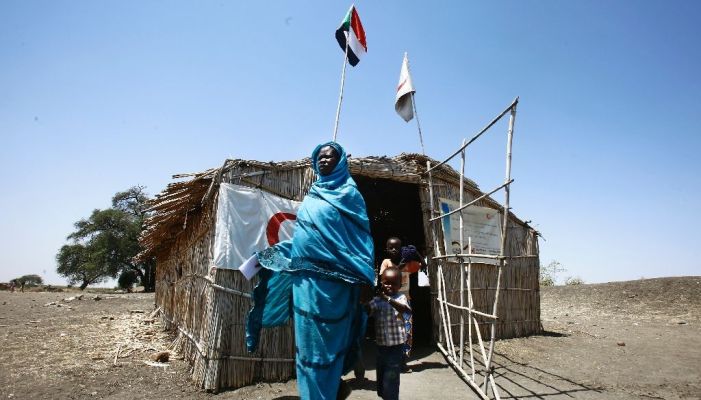British government grants $2.5m for South Sudanese refugees in Sudan

March 8, 2017 (KHARTOUM) – The United Kingdom donated US$2.5 million to the United Nations High Commissioner for Refugees (UNHCR) to cover the basic humanitarian needs of South Sudanese refugees in Sudan.
Since January 2017, over 35,000 South Sudanese refugees have arrived in Sudan. mainly in East Darfur and While Nile states. The number bypassed the initial expectations of the UN agencies.
According to aid groups, the refugees continue to flee the country not only because of the fighting that erupted in December 2013 but also due to food shortage and declared famine in the new nation.
In a statement released in Khartoum, the refugee agency welcomed the British contribution adding it would be used ” funds to purchase non-food items, such as blankets, sleeping mats and cooking kits, which help refugees cook and collect water for basic survival”.
The kits will be prepositioned and provided mainly to newly arriving South Sudanese refugees in White Nile and East Darfur states, as well as other areas, in coordination with Sudan’s Commission for Refugees (COR).
UNHCR’s Representative in Sudan, Noriko Yoshida welcomed the steady support of the United kingdom for the South Sudanese refugees in Sudan indicating that since 2014 the British government has provided over eight million pound sterling (around US$10 million) to this programme.
“This is a major and timely contribution to our efforts to respond to the urgent and growing needs of South Sudanese refugees,” Yoshida further said.
For his part, the head of British Department for International Development (DFID) Christopher Pycroft reiterated the UK commitment to assist South Sudanese refugees in Sudan, of which 85% are vulnerable women and children.
“Since 2014, the UK Government has worked with UNHCR and partners to give 164,200 South Sudanese refugees food assistance, vital water and sanitation infrastructure and shelter for new arrivals,” Pycroft said.
There are 332,000 refugees from South Sudan, mostly women and children, who have arrived since December 2013.
(ST)
